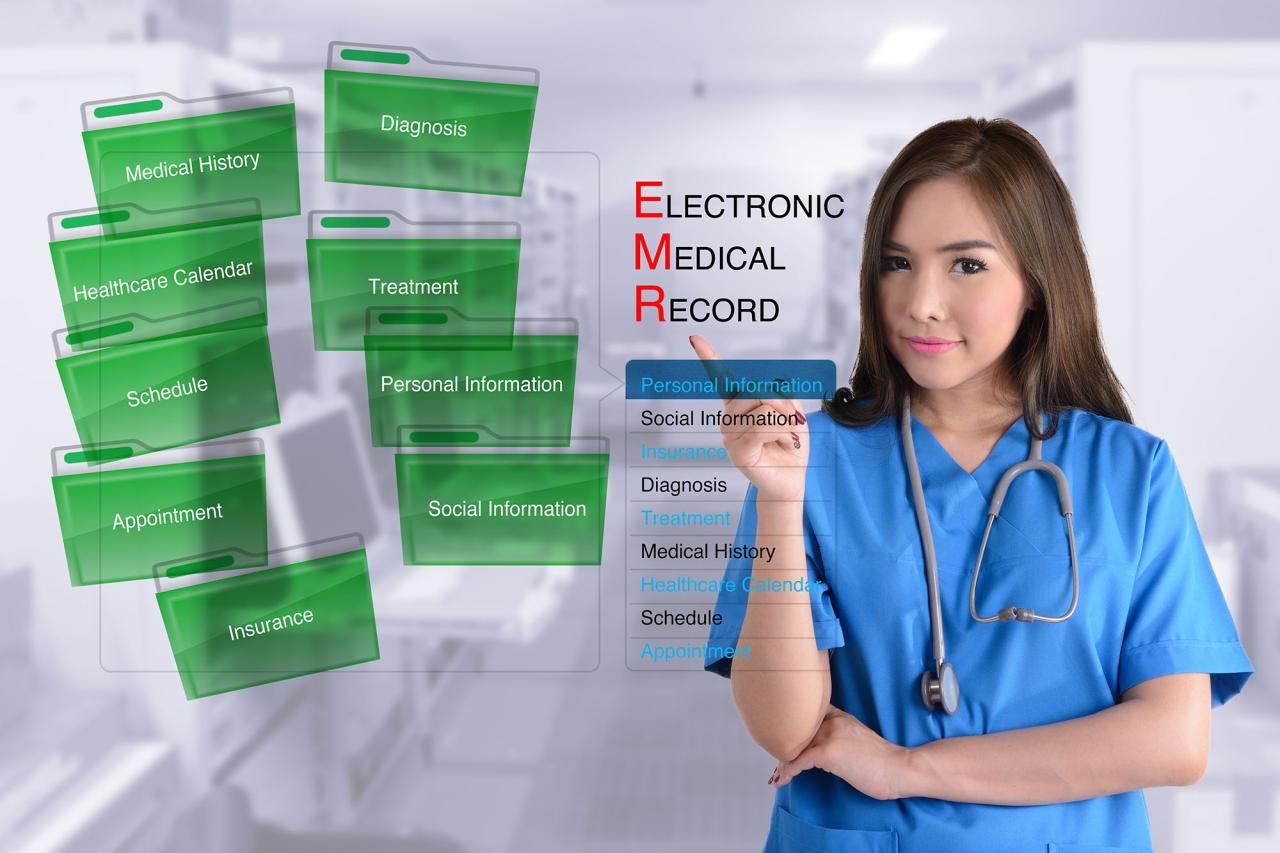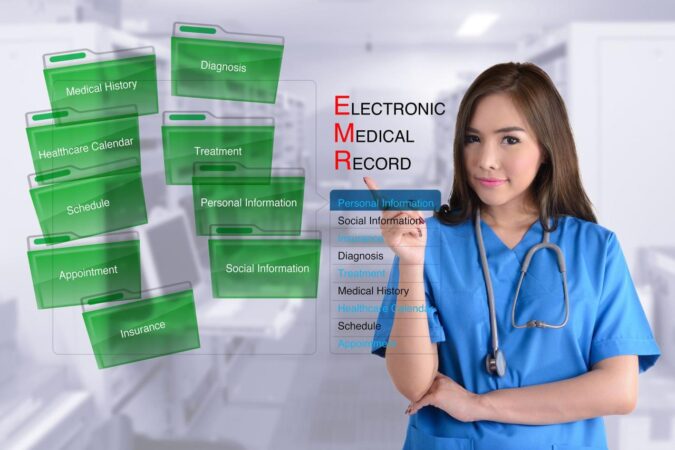
Electronic Health Records (EHR) Overview
Electronic health records (EHRs) are digital versions of a patient’s medical history. They include information such as patient demographics, medical conditions, medications, allergies, and laboratory results. EHRs can be accessed by authorized healthcare providers, regardless of their location, which facilitates the coordination of care and improves patient safety.
EHRs offer several benefits, including improved communication between healthcare providers, reduced medical errors, increased patient engagement, and cost savings. However, there are also challenges associated with EHR implementation, such as the high cost of implementation, the need for staff training, and potential privacy concerns.
EHR Adoption Rates
The adoption of EHRs has been steadily increasing in recent years. According to the Office of the National Coordinator for Health Information Technology (ONC), over 90% of hospitals and 80% of office-based physicians in the United States have adopted EHRs.
EHR Program Features and Functionality
Electronic Health Records (EHR) programs offer a wide range of features and functionalities designed to enhance patient care and streamline healthcare operations. These systems provide a comprehensive view of a patient’s health information, enabling clinicians to make informed decisions and deliver personalized care.
EHR systems typically include core features such as patient demographics, medical history, medication management, allergies, immunizations, laboratory results, imaging studies, and clinical notes. Additionally, they offer advanced functionalities like e-prescribing, patient portals, secure messaging, and clinical decision support tools.
Types of EHR Systems
EHR systems can be categorized into two main types based on their deployment model:
- Cloud-based EHRs: These systems are hosted on a vendor’s servers and accessed via the internet. They offer flexibility, scalability, and reduced IT infrastructure costs.
- On-premises EHRs: These systems are installed on the healthcare organization’s own servers. They provide greater control over data security and customization but require significant upfront investment and ongoing maintenance.
Examples of EHR Software
Numerous EHR software solutions are available in the market, each with its unique set of features and capabilities. Some popular examples include:
- Epic: A comprehensive EHR system known for its advanced clinical functionality and patient engagement tools.
- Cerner: A widely adopted EHR system that offers a wide range of modules and integrations.
- Meditech: A long-established EHR system with a strong focus on inpatient care and hospital management.
EHR Impact on Healthcare Delivery
Electronic Health Records (EHRs) have significantly transformed healthcare delivery, revolutionizing patient care and improving healthcare outcomes. By digitizing patient health information and making it accessible to authorized healthcare providers, EHRs have enhanced efficiency, reduced errors, and empowered patients to take an active role in their healthcare journey.
Improved Patient Care and Outcomes
EHRs have had a profound impact on patient care by providing healthcare providers with a comprehensive view of a patient’s medical history, medications, allergies, and test results. This centralized access to patient data enables providers to make more informed decisions, reduce medication errors, and develop personalized treatment plans. Additionally, EHRs facilitate real-time communication between healthcare providers, allowing them to collaborate seamlessly and respond quickly to changes in a patient’s condition.
Enhanced Efficiency and Reduced Errors
EHRs streamline administrative processes, such as scheduling appointments, ordering tests, and processing insurance claims. The automated nature of these tasks frees up healthcare providers’ time, allowing them to focus on providing high-quality patient care. Moreover, EHRs reduce the risk of errors by eliminating the need for manual data entry and providing clinical decision support tools that guide providers through complex medical decisions.
Increased Patient Engagement
EHRs empower patients by providing them with secure online access to their health information. This transparency fosters trust between patients and providers and encourages patients to take an active role in their healthcare. Through patient portals, patients can view their medical records, communicate with their healthcare providers, and manage their appointments. This increased engagement leads to improved adherence to treatment plans and better health outcomes.
Case Studies and Research Findings
Numerous studies have demonstrated the benefits of EHRs in healthcare delivery. A study published in the Journal of the American Medical Association found that EHRs reduced medication errors by 50% and hospital readmissions by 20%. Another study, published in Health Affairs, showed that EHRs improved patient satisfaction and reduced healthcare costs by 5%.
Future Trends in EHR Programs

EHR technology is continuously evolving, with emerging trends shaping the future of healthcare delivery. Artificial intelligence (AI) and machine learning (ML) are at the forefront of these advancements, transforming the way EHRs are used and managed.
AI and ML algorithms are being integrated into EHR systems to automate tasks, improve data analysis, and enhance decision-making. These technologies can analyze vast amounts of patient data, identify patterns, and provide personalized recommendations to healthcare providers.
AI and ML in EHRs
- Automated data entry: AI can extract and input data from medical records, reducing manual entry errors and saving time.
- Clinical decision support: ML algorithms can analyze patient data to identify potential health risks, suggest treatment plans, and provide guidance on medication selection.
- Personalized medicine: AI and ML can tailor treatments to individual patients based on their unique genetic makeup, medical history, and lifestyle factors.
These advancements in EHR technology hold great promise for improving healthcare outcomes, reducing costs, and enhancing the patient experience. As AI and ML continue to develop, we can expect to see even more transformative applications in EHR systems in the years to come.





